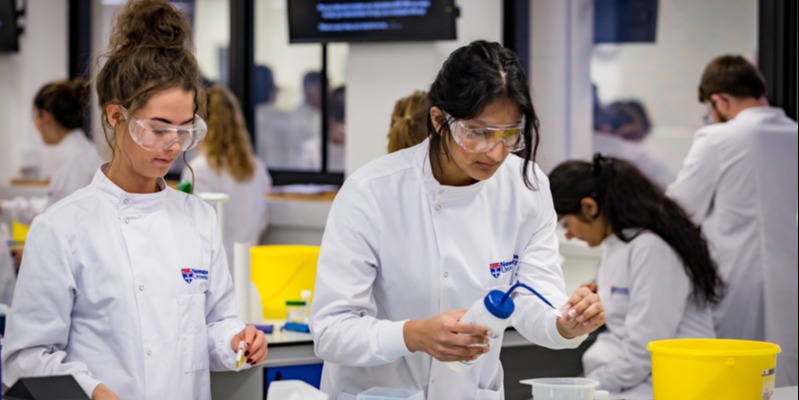If you’re planning on studying in the UK, it’s important to understand the education system here and the different steps that students take throughout their educational journey.
It’s useful to know this information so that you can make sure you have everything you need to be accepted at a UK university. Then you can begin to plan the steps you’ll take once you’ve graduated.
Here’s how the study structure works in the UK.

The UK education system
Primary school
The first step of a UK student’s journey takes place at primary school. Students begin there aged five and leave when they’re 11. During that time, students will progress through Key Stages 1 and 2*, doing assessments at the end of each stage.
In the final year of primary school, students and their parents apply for places at local high schools. Some high schools require entrance exams, so students will take them at this point in time.
* Key Stages 1 and 2 are the legal terms used in the UK to define the first six years of schooling (Years 1-6) in England and Wales.
Secondary (high) school
After primary school, students attend secondary school. In the UK, this is usually referred to as high school. Not every student has the same experience, although there is a national curriculum that most schools often stick to. Some of the types include public schools, grammar schools and faith schools.
Students will finish Key Stage 3* by 14 before moving onto the first important qualifications they’ll face - GCSEs. Students are required to take Maths, English and Science (combined or the individual subjects of Biology, Chemistry and Physics) but they’re able to choose between others, like languages, music and art.
At 16, students sit their GCSE exams and decide what they want to do next. There are a few different options available to them.
* Key Stages 3 is the legal term used in the UK to define the three years of schooling (Years 7-9) that follow Key Stages 1 and 2 in England and Wales.
Further education
Once students have finished their GCSEs, they can stay in full-time education at a college or sixth form and take qualifications like A Levels or BTECs. Or, they can begin an apprenticeship and learn skills in a workplace.
Finally, they can work part-time while also completing some kind of part-time training.
If students want to study at university, then they’ll need to complete the relevant qualifications in related subjects in order to be accepted. Before taking their final exams, students will decide which degrees they want to study and which universities they want to go to.
Universities offer places to students based on their applications and assuming they achieve target grades. Once the student has confirmed their choice and met the grades, they’re ready to start at university.
Undergraduate degrees
Students typically begin these degrees when they’re 18, although there’s no kind of age limit on course enrolment. There are different types of undergraduate study but the most popular is a bachelor’s degree. Depending on the course, they can be bachelors in arts, engineering or science, for example.
These courses usually take around three to four years to complete, perhaps longer if there’s an added year in industry as part of the course. Students take exams at the end of modules, needing to pass them to progress onto future ones. These exam results contribute to the final grade the student receives at the end of the course.
Once the degree is completed, many students begin to look for work with their newly-earned qualification. However, this is not the only option. There are further qualifications that are more advanced than a bachelor’s degree.
Postgraduate study
After an undergraduate degree, students can take further degrees such as postgraduate diplomas through to master’s degrees and PhDs.
They’re taken because they’re an excellent way of specialising in a certain subject or topic. They also allow you to develop new skills, carry out industry-leading research and pass your findings onto the next batch of undergraduates. The level of degree you achieve can influence your title.
For example, complete a PhD and you’ll become a doctor of your chosen field.
Now you know the UK education system, you’ll know where you fall in it. You might be 16-18 and thinking about your future prospects.
Our universities offer outstanding learning experiences, with students able to access state-of-the-art facilities. The work they’ll be a part of is at the cutting edge of industry, meaning they’re learning the skills and knowledge needed to be a valuable asset to a future employer.
Study an undergraduate degree here in the UK
The UK itself is a wonderful place to live, study and grow. There are unique sights and breathtaking landscapes to enjoy, plus there are galleries, museums and other creative spaces that are perfect for students looking for a little inspiration.
Newcastle University is home to world-leading research and a welcoming and diverse community. There’s always something to see and do in the city, plus the city’s great location makes it the perfect hub to explore everything the UK has to offer.
For an idea of the courses we offer to international students, make sure to download our prospectus now using the link below.
